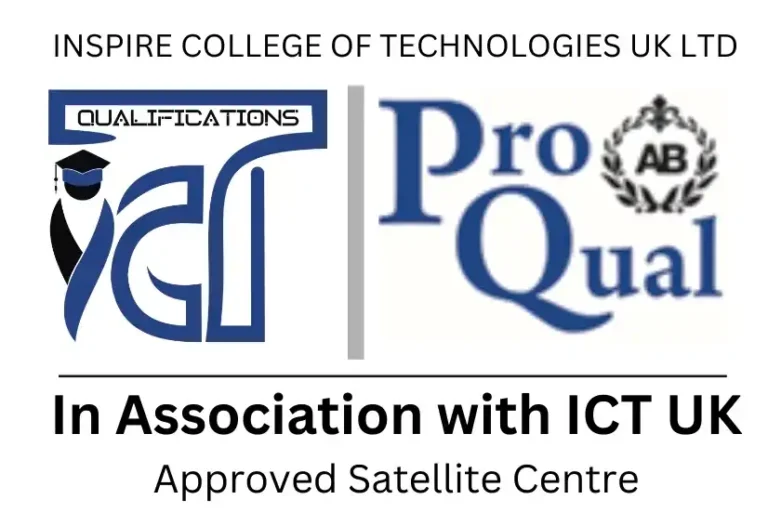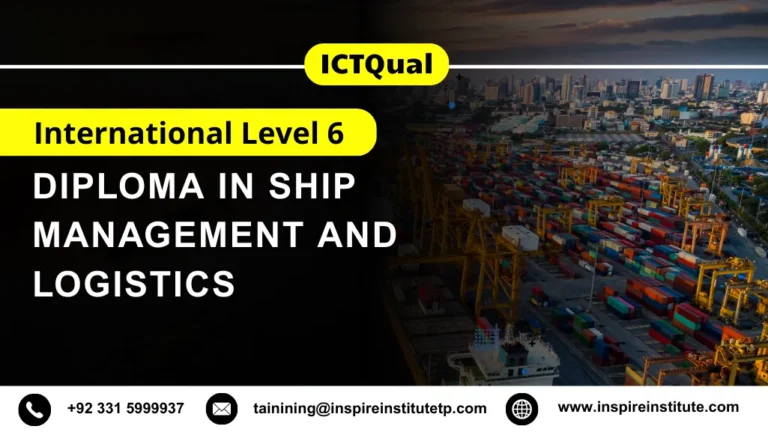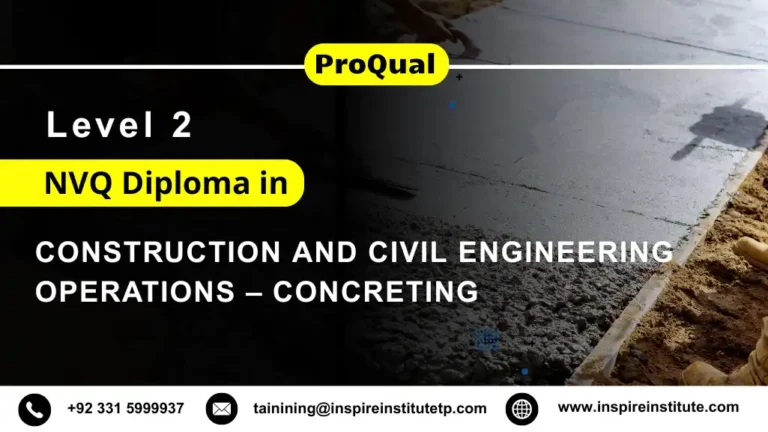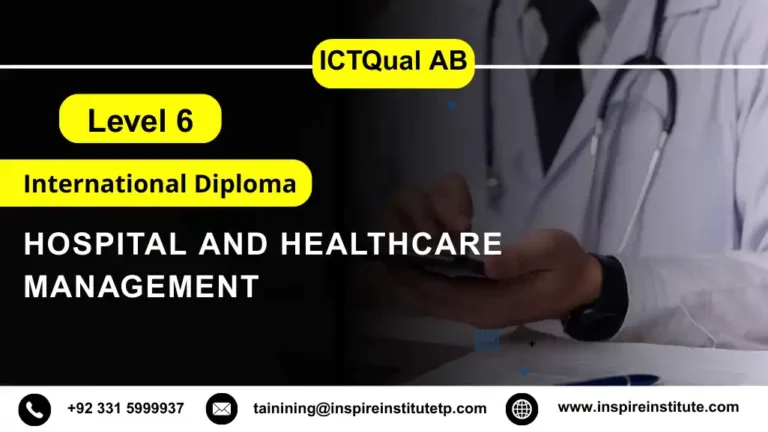ProQual Level 6 NVQ Diploma in Construction Site Management
The ProQual Level 6 NVQ Diploma in Construction Site Management is a vital qualification for professionals aiming to advance their careers in the construction industry. This recognized diploma equips individuals with the expertise needed to manage complex construction projects, ensuring they are delivered on time, within budget, and to the highest quality standards. Tailored for individuals already working in construction management roles, the diploma is ideal for site managers, project managers, and construction supervisors who want to formalize their experience and enhance their professional standing. It covers key areas such as project planning, resource management, health and safety compliance, and effective communication. This provides a comprehensive framework for managing construction sites efficiently and successfully.
Why Choose this Qualification
Choosing the ProQual Level 6 NVQ Diploma in Construction Site Management offers a range of compelling benefits for professionals in the construction industry. This qualification is recognized for its practical, work-based approach, allowing candidates to enhance their skills without stepping away from their current roles. Here are key reasons to choose this qualification:
- Industry Recognition: The ProQual Level 6 NVQ Diploma is highly respected across the construction sector. It aligns with industry standards and is recognized by key bodies such as the Chartered Institute of Building (CIOB) and the Construction Skills Certification Scheme (CSCS). This makes it an excellent credential for advancing within the industry.
- Career Advancement: Earning this diploma significantly boosts career prospects. It qualifies candidates for senior roles, such as Construction Manager or Project Director, and enables them to apply for the prestigious Black CSCS Manager’s card, a requirement for many higher-level positions in the field.
- Flexible, Work-Based Learning: Unlike traditional academic programs, this qualification is assessed based on practical, on-the-job performance. You compile evidence from your current role, demonstrating your skills in real-world scenarios, which allows you to continue working while completing the course.
- Enhanced Earning Potential: With higher qualifications often come better job opportunities and increased earning potential. The ProQual Level 6 NVQ Diploma opens the door to more senior, better-paying roles within the construction industry.
- Specialized Skills Development: This diploma equips you with advanced site management skills, including project planning, health and safety management, resource allocation, and effective communication. These are essential for overseeing large-scale projects and ensuring their success.
- No Exams, Competence-Based Assessment: The qualification is based on your competence in your job role. There are no formal exams; instead, you are assessed on your ability to perform tasks and manage responsibilities, making it an ideal choice for hands-on learners.
- Pathway to Chartered Status: This qualification can lead to Chartered Membership (MCIOB) with the Chartered Institute of Building (CIOB), which is highly valued by employers and enhances your professional standing in the industry.
Choosing the ProQual Level 6 NVQ Diploma in Construction Site Management is an investment in your career, providing both practical skills and the credentials needed to secure leadership roles in a competitive industry.
Course Overview
Ofqual Regulated Qualification
Course Level: Level 6
Average Completion Time:
6-18 Months
Required Credits: Complete one Pathway
Evidence & Assignment Based

Inspire Institute of Technologies is Approved Satellite Centre of ProQual
Qualification Structure
The ProQual Level 6 NVQ Diploma in Construction Site Management, to achieve the qualification candidates must complete the Mandatory/Optional Units from one of the Pathways. Candidates may also complete any of the Additional Units, but these will not count towards the qualification.
Pathway
1. Pathway 1: Building and Civil Engineering
Minimum TQT 2200
2. Pathway 2: Highways Maintenance and Repair
Minimum TQT 2180
3. Pathway 3: Residential Development
Minimum TQT 2210
4. Pathway 4: Traditional and Heritage Building
Minimum TQT 2270
5. Pathway 5: Demolition
Minimum TQT 2230
6. Pathway 6: Tunnelling
Minimum TQT 2270
7. Pathway 7: Retrofit
Minimum TQT 2290
Mandatory Units
Pathway 1: Building and Civil Engineering of Minimum TQT 2200
| Unit Title | Unit Level | GLH |
| Developing and maintaining good occupational working relationships in the workplace | 3 | 27 |
| Allocating work and monitoring people’s performance in the workplace | 6 | 40 |
| Contributing to the identification of a work team in the workplace | 5 | 20 |
| Establishing, implementing and maintaining organisational systems for managing health, safety, welfare and wellbeing in the workplace | 7 | 65 |
| Establishing, controlling and monitoring environmental factors and sustainability in the workplace | 6 | 70 |
| Evaluating and confirming work methods in the workplace | 7 | 30 |
| Planning the preparation of the site for the project in the workplace | 7 | 50 |
| Monitoring project activities in the workplace | 6 | 20 |
| Ensuring that work activities and resources meet project work requirements in the workplace | 7 | 50 |
| Organising, controlling and monitoring supplies of materials in the workplace | 5 | 20 |
| Identifying and maintaining communication systems and organisational procedures in the workplace | 6 | 30 |
| Controlling project progress against agreed quality standards in the workplace | 6 | 30 |
| Controlling project progress against agreed programmes in the workplace | 6 | 30 |
| Managing your personal development in the workplace | 6 | 20 |
| Identifying, allocating and planning the deployment and use of plant, equipment or machinery in the workplace | 6 | 20 |
| Establishing dimensional control criteria in the workplace | 6 | 20 |
| Controlling project quantities and costs in the workplace | 6 | 20 |
| Evaluating feedback and making recommendations in the workplace | 6 | 25 |
| Managing the installation, maintenance, monitoring and removal of temporary works in the workplace | 6 | 30 |
Optional Units – ONE unit
| Unit Title | Unit Level | GLH |
| Enabling learning opportunities in the workplace | 5 | 40 |
| Planning activities to traditional and heritage buildings and structures in the workplace | 6 | 50 |
| Planning demolition activities in the workplace | 7 | 50 |
| Planning and scheduling the maintenance activities of property, services or systems in the workplace | 6 | 40 |
| Managing the project handover in the workplace | 6 | 40 |
| Planning tunnelling activities in the workplace | 6 | 50 |
Pathway 2: Highways Maintenance and Repair of Minimum TQT 2180
| Unit Title | Unit Level | GLH |
| Developing and maintaining good occupational working relationships in the workplace | 3 | 27 |
| Allocating work and monitoring people’s performance in the workplace | 6 | 40 |
| Contributing to the identification of a work team in the workplace | 5 | 20 |
| Establishing, implementing and maintaining organisational systems for managing health, safety, welfare and wellbeing in the workplace | 7 | 65 |
| Establishing, controlling and monitoring environmental factors and sustainability in the workplace | 6 | 70 |
| Evaluating and confirming work methods in the workplace | 7 | 30 |
| Planning the preparation of the site for the project in the workplace | 7 | 50 |
| Monitoring project activities in the workplace | 6 | 20 |
| Ensuring that work activities and resources meet project work requirements in the workplace | 7 | 50 |
| Organising, controlling and monitoring supplies of materials in the workplace | 5 | 20 |
| Identifying and maintaining communication systems and organisational procedures in the workplace | 6 | 30 |
| Controlling project progress against agreed quality standards in the workplace | 6 | 30 |
| Controlling project progress against agreed programmes in the workplace | 6 | 30 |
| Managing your personal development in the workplace | 6 | 20 |
| Planning highways maintenance and repair activities in the workplace | 5 | 30 |
| Identifying, allocating and planning the deployment and use of plant, equipment or machinery in the workplace | 6 | 20 |
| Controlling project quantities and costs in the workplace | 6 | 20 |
| Evaluating feedback and making recommendations in the workplace | 6 | 25 |
Optional Units – TWO units
| Unit Title | Unit Level | GLH |
| Enabling learning opportunities in the workplace | 5 | 40 |
| Providing customer services in the construction workplace | 6 | 40 |
| Planning activities to traditional and heritage buildings and structures in the workplace | 6 | 50 |
| Planning demolition activities in the workplace | 7 | 50 |
| Establishing dimensional control criteria in the workplace | 6 | 20 |
| Planning and scheduling the maintenance activities of property, services or systems in the workplace | 6 | 40 |
| Managing the project handover in the workplace | 6 | 40 |
| Managing the installation, maintenance, monitoring and removal of temporary works in the workplace | 6 | 30 |
Pathway 3: Residential Development of Minimum TQT 2210
| Unit Title | Unit Level | GLH |
| Developing and maintaining good occupational working relationships in the workplace | 3 | 27 |
| Allocating work and monitoring people’s performance in the workplace | 6 | 40 |
| Contributing to the identification of a work team in the workplace | 5 | 20 |
| Establishing, implementing and maintaining organisational systems for managing health, safety, welfare and wellbeing in the workplace | 7 | 65 |
| Establishing, controlling and monitoring environmental factors and sustainability in the workplace | 6 | 70 |
| Evaluating and confirming work methods in the workplace | 7 | 30 |
| Planning the preparation of the site for the project in the workplace | 7 | 50 |
| Monitoring project activities in the workplace | 6 | 20 |
| Ensuring that work activities and resources meet project work requirements in the workplace | 7 | 50 |
| Organising, controlling and monitoring supplies of materials in the workplace | 5 | 20 |
| Identifying and maintaining communication systems and organisational procedures in the workplace | 6 | 30 |
| Controlling project progress against agreed quality standards in the workplace | 6 | 30 |
| Controlling project progress against agreed programmes in the workplace | 6 | 30 |
| Managing your personal development in the workplace | 6 | 20 |
| Providing customer services in the construction workplace | 6 | 40 |
| Establishing dimensional control criteria in the workplace | 6 | 20 |
| Planning and scheduling the maintenance activities of property, services or systems in the workplace | 6 | 40 |
| Managing the project handover in the workplace | 6 | 40 |
Optional Units – TWO units
| Unit Title | Unit Level | GLH |
| Enabling learning opportunities in the workplace | 5 | 40 |
| Planning activities to traditional and heritage buildings and structures in the workplace | 6 | 50 |
| Planning demolition activities in the workplace | 7 | 50 |
| Identifying, allocating and planning the deployment and use of plant, equipment or machinery in the workplace | 6 | 20 |
| Controlling project quantities and costs in the workplace | 6 | 20 |
| Evaluating feedback and making recommendations in the workplace | 6 | 25 |
| Planning the installation of retrofit works in the workplace | 6 | 60 |
| Managing installation, commissioning and handover of retrofit works in the workplace | 6 | 60 |
| Managing the installation, maintenance, monitoring and removal of temporary works in the workplace | 6 | 30 |
Pathway 4: Traditional and Heritage Building of Minimum TQT 2270
| Unit Title | Unit Level | GLH |
| Developing and maintaining good occupational working relationships in the workplace | 3 | 27 |
| Allocating work and monitoring people’s performance in the workplace | 6 | 40 |
| Contributing to the identification of a work team in the workplace | 5 | 20 |
| Establishing, implementing and maintaining organisational systems for managing health, safety, welfare and wellbeing in the workplace | 7 | 65 |
| Establishing, controlling and monitoring environmental factors and sustainability in the workplace | 6 | 70 |
| Evaluating and confirming work methods in the workplace | 7 | 30 |
| Planning the preparation of the site for the project in the workplace | 7 | 50 |
| Monitoring project activities in the workplace | 6 | 20 |
| Ensuring that work activities and resources meet project work requirements in the workplace | 7 | 50 |
| Organising, controlling and monitoring supplies of materials in the workplace | 5 | 20 |
| Identifying and maintaining communication systems and organisational procedures in the workplace | 6 | 30 |
| Controlling project progress against agreed quality standards in the workplace | 6 | 30 |
| Controlling project progress against agreed programmes in the workplace | 6 | 30 |
| Managing your personal development in the workplace | 6 | 20 |
| Planning activities to traditional and heritage buildings and structures in the workplace | 6 | 50 |
| Controlling project quantities and costs in the workplace | 6 | 20 |
| Planning and scheduling the maintenance activities of property, services or systems in the workplace | 6 | 40 |
| Optional Units – THREE units | ||
| Unit Title | Unit Level | GLH |
| Enabling learning opportunities in the workplace | 5 | 40 |
| Providing customer services in the construction workplace | 6 | 40 |
| Supervising activities to traditional and heritage buildings and structures in the workplace | 5 | 50 |
| Planning demolition activities in the workplace | 7 | 50 |
| Identifying, allocating and planning the deployment and use of plant, equipment or machinery in the workplace | 6 | 20 |
| Establishing dimensional control criteria in the workplace | 6 | 20 |
| Evaluating feedback and making recommendations in the workplace | 6 | 25 |
Pathway 5: Demolition of Minimum TQT 2230
| Unit Title | Unit Level | GLH |
| Developing and maintaining good occupational working relationships in the workplace | 3 | 27 |
| Allocating work and monitoring people’s performance in the workplace | 6 | 40 |
| Contributing to the identification of a work team in the workplace | 5 | 20 |
| Establishing, implementing and maintaining organisational systems for managing health, safety, welfare and wellbeing in the workplace | 7 | 65 |
| Establishing, controlling and monitoring environmental factors and sustainability in the workplace | 6 | 70 |
| Evaluating and confirming work methods in the workplace | 7 | 30 |
| Planning the preparation of the site for the project in the workplace | 7 | 50 |
| Monitoring project activities in the workplace | 6 | 20 |
| Ensuring that work activities and resources meet project work requirements in the workplace | 7 | 50 |
| Organising, controlling and monitoring supplies of materials in the workplace | 5 | 20 |
| Identifying and maintaining communication systems and organisational procedures in the workplace | 6 | 30 |
| Controlling project progress against agreed quality standards in the workplace | 6 | 30 |
| Controlling project progress against agreed programmes in the workplace | 6 | 30 |
| Managing your personal development in the workplace | 6 | 20 |
| Planning demolition activities in the workplace | 7 | 50 |
| Identifying, allocating and planning the deployment and use of plant, equipment or machinery in the workplace | 6 | 20 |
| Controlling project quantities and costs in the workplace | 6 | 20 |
| Managing the project handover in the workplace | 6 | 40 |
| Managing the installation, maintenance, monitoring and removal of temporary works in the workplace | 6 | 30 |
| Unit Title | Unit Level | GLH |
| Enabling learning opportunities in the workplace | 5 | 40 |
| Providing customer services in the construction workplace | 6 | 40 |
| Planning activities to traditional and heritage buildings and structures in the workplace | 6 | 50 |
| Establishing dimensional control criteria in the workplace | 6 | 20 |
| Evaluating feedback and making recommendations in the workplace | 6 | 25 |
| Planning and scheduling the maintenance activities of property, services or systems in the workplace | 6 | 40 |
Pathway 6: Tunnelling of Minimum TQT 2270
| Unit Title | Unit Level | GLH |
| Developing and maintaining good occupational working relationships in the workplace | 3 | 27 |
| Allocating work and monitoring people’s performance in the workplace | 6 | 40 |
| Contributing to the identification of a work team in the workplace | 5 | 20 |
| Establishing, implementing and maintaining organisational systems for managing health, safety, welfare and wellbeing in the workplace | 7 | 65 |
| Establishing, controlling and monitoring environmental factors and sustainability in the workplace | 6 | 70 |
| Evaluating and confirming work methods in the workplace | 7 | 30 |
| Planning the preparation of the site for the project in the workplace | 7 | 50 |
| Monitoring project activities in the workplace | 6 | 20 |
| Ensuring that work activities and resources meet project work requirements in the workplace | 7 | 50 |
| Organising, controlling and monitoring supplies of materials in the workplace | 5 | 20 |
| Identifying and maintaining communication systems and organisational procedures in the workplace | 6 | 30 |
| Controlling project progress against agreed quality standards in the workplace | 6 | 30 |
| Controlling project progress against agreed programmes in the workplace | 6 | 30 |
| Managing your personal development in the workplace | 6 | 20 |
| Establishing dimensional control criteria in the workplace | 6 | 20 |
| Controlling project quantities and costs in the workplace | 6 | 20 |
| Managing the project handover in the workplace | 6 | 40 |
| Planning tunnelling activities in the workplace | 6 | 50 |
| Managing the installation, maintenance, monitoring and removal of temporary works in the workplace | 6 | 30 |
Optional Units – ONE unit
| Unit Title | Unit Level | GLH |
| Enabling learning opportunities in the workplace | 5 | 40 |
| Providing customer services in the construction workplace | 6 | 40 |
| Supervising tunnelling activities in the workplace | 6 | 50 |
| Identifying, allocating and planning the deployment and use of plant, equipment or machinery in the workplace | 6 | 20 |
| Evaluating feedback and making recommendations in the workplace | 6 | 25 |
Pathway 7: Retrofit of Minimum TQT 2290
| Unit Title | Unit Level | GLH |
| Developing and maintaining good occupational working relationships in the workplace | 3 | 27 |
| Allocating work and monitoring people’s performance in the workplace | 6 | 40 |
| Contributing to the identification of a work team in the workplace | 5 | 20 |
| Establishing, implementing and maintaining organisational systems for managing health, safety, welfare and wellbeing in the workplace | 7 | 65 |
| Establishing, controlling and monitoring environmental factors and sustainability in the workplace | 6 | 70 |
| Evaluating and confirming work methods in the workplace | 7 | 30 |
| Planning the preparation of the site for the project in the workplace | 7 | 50 |
| Monitoring project activities in the workplace | 6 | 20 |
| Ensuring that work activities and resources meet project work requirements in the workplace | 7 | 50 |
| Organising, controlling and monitoring supplies of materials in the workplace | 5 | 20 |
| Identifying and maintaining communication systems and organisational procedures in the workplace | 6 | 30 |
| Controlling project progress against agreed quality standards in the workplace | 6 | 30 |
| Controlling project progress against agreed programmes in the workplace | 6 | 30 |
| Managing your personal development in the workplace | 6 | 20 |
| Establishing dimensional control criteria in the workplace | 6 | 20 |
| Controlling project quantities and costs in the workplace | 6 | 20 |
| Planning the installation of retrofit works in the workplace | 6 | 60 |
| Managing installation, commissioning and handover of retrofit works in the workplace | 6 | 60 |
Optional Units – TWO units
| Unit Title | Unit Level | GLH |
| Enabling learning opportunities in the workplace | 5 | 40 |
| Providing customer services in the construction workplace | 6 | 40 |
| Planning activities to traditional and heritage buildings and structures in the workplace | 6 | 50 |
| Supervising activities to traditional and heritage buildings and structures in the workplace | 5 | 50 |
| Evaluating feedback and making recommendations in the workplace | 6 | 25 |
| Planning and scheduling the maintenance activities of property, services or systems in the workplace | 6 | 40 |
Who Should Take This Course
e ProQual Level 6 NVQ Diploma in Construction Site Management is specifically designed for professionals who are involved in the management and oversight of construction projects. The course is suitable for a variety of individuals within the construction sector, including:
- Site Managers: Those responsible for managing day-to-day operations on construction sites, ensuring projects are delivered safely, on time, and within budget.
- Project Managers: Professionals who oversee the entire lifecycle of construction projects, coordinating between teams, clients, and stakeholders to achieve project goals.
- Construction Supervisors: Individuals who supervise the work of construction teams and ensure that tasks are performed according to project specifications and safety standards.
- Construction Team Leaders: Those who lead specific teams or trades on construction sites, requiring a solid understanding of site management principles to ensure effective team performance.
- Assistant Site Managers: Professionals looking to enhance their skills and knowledge in site management, preparing for more advanced roles within the construction industry.
- Individuals Aspiring to Management Roles: Those with relevant experience in the construction field who wish to formalize their knowledge and skills, paving the way for career advancement into higher management positions.
- Construction Professionals Seeking Career Development: Individuals already in the industry who want to broaden their expertise, improve their qualifications, and stay updated on industry best practices and regulations.
- Safety Officers: Professionals involved in ensuring compliance with health and safety regulations on construction sites who wish to enhance their understanding of site management.
This diploma is ideal for those who possess relevant work experience and are eager to further develop their management capabilities in the construction environment. By pursuing this qualification, candidates can enhance their employability and open doors to advanced career opportunities in the construction industry
Course Benefits
The ProQual Level 6 NVQ Diploma in Construction Site Management offers a range of benefits that make it a valuable qualification for professionals in the construction industry. Here are the key benefits of this course:
- Industry-Recognized Qualification: This diploma is widely respected in the construction sector and is recognized by major industry bodies like the Chartered Institute of Building (CIOB) and the Construction Skills Certification Scheme (CSCS). It enhances your professional credibility and standing within the industry.
- Career Progression: Earning this qualification positions you for advancement into senior management roles, such as Construction Manager or Site Director. It also qualifies you for the Black CSCS Manager’s card, opening doors to high-level management opportunities.
- Work-Based Learning: The course allows you to gain the qualification while working, using your real-world experience to demonstrate competence. This makes it highly practical and relevant to your current role, ensuring you can apply what you learn immediately.
- No Formal Exams: The qualification is assessed through your ability to perform your job role and provide evidence of your competencies. This means there are no formal exams, which can ease the pressure and make the course more accessible to professionals already in full-time work.
- Enhanced Earning Potential: The diploma can lead to more senior roles within the industry, which often come with higher salaries. Having a Level 6 NVQ demonstrates your ability to manage complex projects, making you a valuable asset to employers.
- Comprehensive Skill Development: The course covers critical areas such as project management, health and safety, resource management, and site operations, providing you with a comprehensive skill set that is essential for managing large-scale construction projects.
- Eligibility for Chartered Status: Completing the diploma helps you work towards Chartered Membership (MCIOB) with the Chartered Institute of Building, a prestigious credential that can further enhance your career and professional recognition.
- Improved Job Security: In an increasingly competitive industry, having an advanced qualification like the ProQual Level 6 NVQ Diploma helps you stand out and gives you an edge in securing senior management roles.
By enrolling in the ProQual Level 6 NVQ Diploma in Construction Site Management, you will gain a well-rounded education that enhances both your technical and leadership skills, positioning you for long-term success and growth in the construction industry.
Eligibility Criteria
To be eligible for the ProQual Level 6 NVQ Diploma in Construction Site Management, candidates typically should have:
Relevant Work Experience: Candidates should have substantial experience in a construction management role or a related field. This experience provides the practical foundation necessary for the course.
Current Employment: Candidates must be currently employed in a construction-related position, enabling them to apply their learning in real-world scenarios and complete required assessments effectively.
Basic Understanding of Construction Processes: A foundational knowledge of construction processes, methods, and terminology is essential for successfully navigating the course material.
Health and Safety Knowledge: Familiarity with health and safety regulations applicable to the construction industry is required, as this is a critical component of effective site management.
Commitment to Professional Development: Candidates should demonstrate a desire for professional growth and a commitment to completing the course requirements.
Communication Skills: Effective verbal and written communication skills are important, as candidates will need to engage with various stakeholders and produce reports as part of their assessments.
The Qualification Process
The qualification process for the ProQual Level 6 NVQ Diploma in Construction Site Management is structured around work-based assessment, allowing candidates to demonstrate their competence through real-world performance in their current roles. Here’s an outline of the qualification process:
- Initial Registration and Induction
Once enrolled, candidates receive an induction that explains the course structure, assessment methods, and required evidence. A qualified assessor is assigned to guide the candidate through the process. - Portfolio of Evidence
The qualification is evidence-based, meaning candidates must compile a portfolio that demonstrates their competency in various areas of site management. This evidence is gathered from day-to-day activities on real construction projects and must show practical application of skills in managing sites, health and safety, resources, and project progress. - Work-Based Assessment
Candidates are assessed through their workplace activities. The assigned assessor visits the work site to observe performance and review the portfolio. Assessments can include site visits, discussions, witness testimonies from colleagues or supervisors, and written records of completed tasks. - Meeting Core Unit Requirements
The diploma consists of mandatory and optional units that cover essential areas such as health and safety management, project planning, and coordination of site operations. Candidates must demonstrate their knowledge and practical experience across these units, tailoring their portfolio to match the specific competencies required. - Continuous Feedback and Guidance
Throughout the qualification process, the assessor provides feedback to ensure that the candidate meets the required standards. If necessary, the candidate may be asked to provide additional evidence or refine their portfolio. - Final Review and Verification
Once the portfolio is complete and all evidence has been submitted, the assessor conducts a final review. The completed portfolio is then verified by an internal verifier to ensure it meets the qualification standards. - Award of Qualification
Upon successful verification, the candidate is awarded the ProQual Level 6 NVQ Diploma in Construction Site Management. This qualification can be used to apply for the Black CSCS Manager’s card and can lead to Chartered Membership (MCIOB) with the Chartered Institute of Building.
The qualification process is designed to be flexible and allows candidates to progress at their own pace while continuing in their current roles. It emphasizes practical experience, making the learning applicable and valuable for career advancement.







